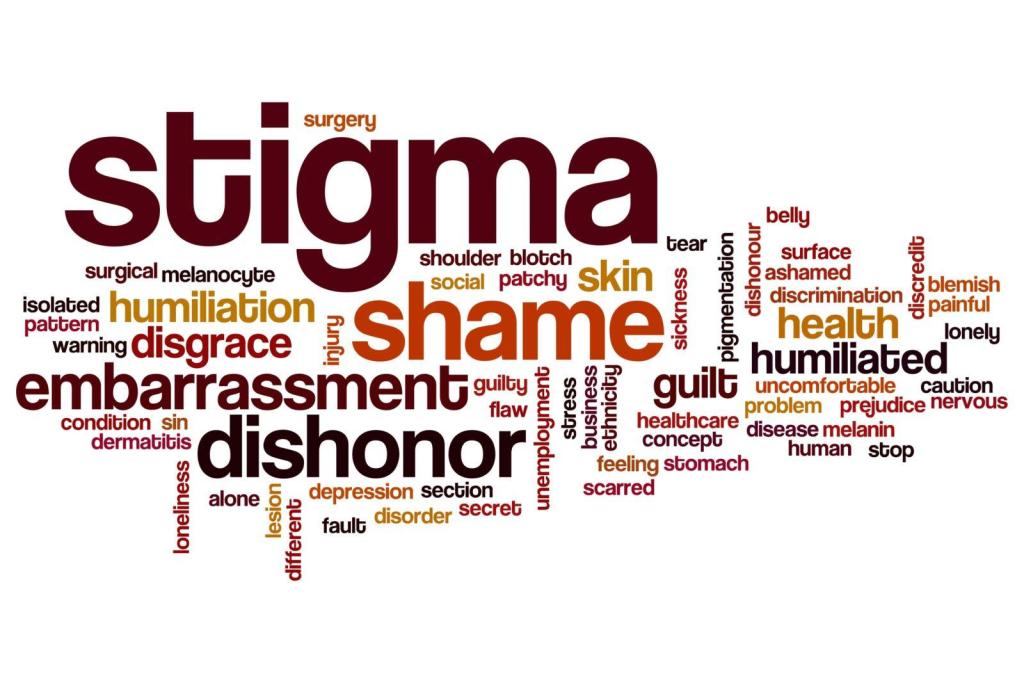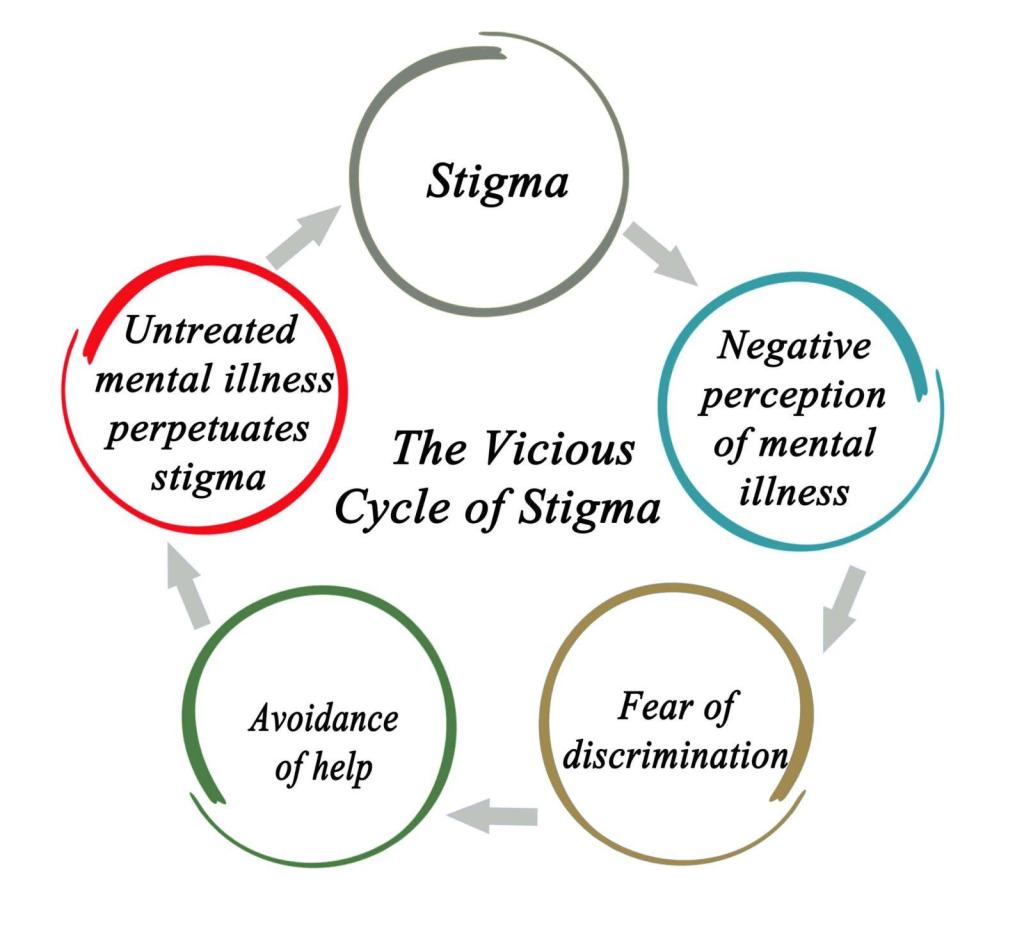
According to Mental Health America, more than half of people with mental illnesses do not obtain adequate treatment. Mental illness treatment is either delayed or avoided due to fear of discrimination and marginalization. The stigma attached to mental illnesses causes people to react with fear, anger, and intolerance toward those suffering from mental health disorders.
What is stigma?

A negative or unfair social attitude towards a person or a group that shames them for a perceived deficiency or difference.
Where does mental illness stigma come from?
Origin
- Lack of understanding
- Misinformation
- Harmful stereotypes
- Ignorance
- Fear
- Inaccurate or misleading media representations
- Diverse racial and ethnic communities
- Prejudice (negative attitudes or beliefs)
Examples of mental health stigma
- Being called: dangerous, crazy, incompetent, weak, lazy
- It is a choice and lack of willpower
- Individuals with mental health problems cannot recover
- Therapy is a waste of time
- It is impossible to prevent a mental health problem
Types of stigma against people with Mental Health disorders
Public stigma
- A negative attitude towards mental illness

Self-stigma
- Internalizing shame and having a negative attitude towards their mental illness
Impact of Stigma
- Delayed treatment
- Poor quality of life
- Low self-esteem, shameful, self-doubt, and hopelessness
- Relationship difficulties
- Decreased adherence to therapy
- Difficulties at work
- Reluctance to seek help from a healthcare provider
- Social isolation, rejection, and avoidance
- Lack of understanding by family, friends, and others
- Fewer opportunities
- Harassment, bullying, and physical violence
Addressing Stigma

- Talk openly about mental health
- Educate yourself and others about mental health
- Remind others that words matter
- Avoid the stigma from creating self-doubt and shame
- Encourage equality between physical and mental illness
- Show compassion for those with mental illness
- Be honest about treatment
- Choose empowerment over shame
When to see a doctor
Seek a healthcare provider when experiencing symptoms of trauma
DISCLAIMER
This information is intended for educational purposes only and it is not intended to take the place of consultation with your physician.
root cause medicine
Start your journey to health & wellness
Integrative Primary Care
We’ll guide you through the entire process of healing..
Regenerative Aesthetics
Regenerate hair and skin on a cellular level
Lifestyle Wellness Program
Our center’s innovative program will surely get you back on track!



